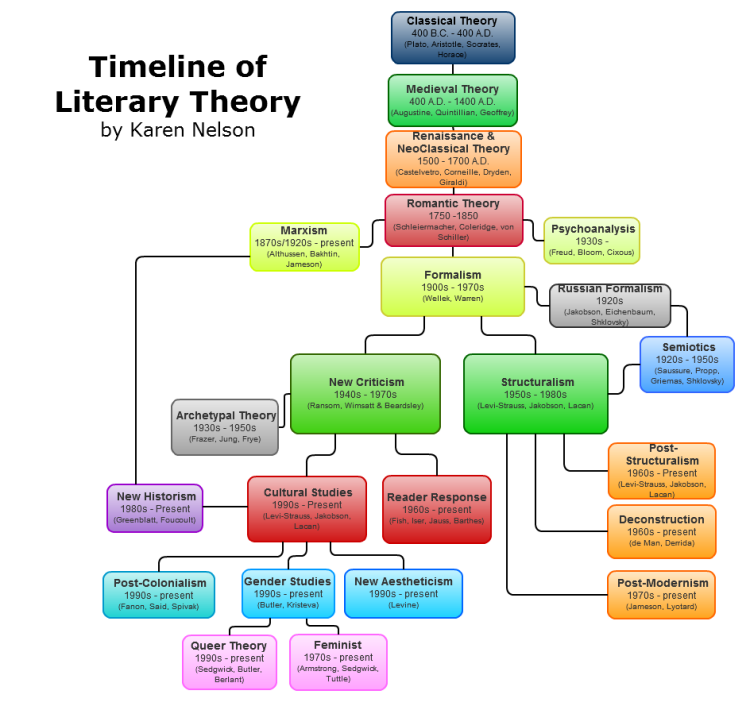Renaissance
- Sidney : His works include Astrophel and Stella, The Defence of Poesy(also known as The Defence of Poetry or An Apology for Poetry), and The Countess of Pembroke’s Arcadia.
- Ben Jonson : He popularised the comedy of humours. He is best known for the satirical plays Every Man in His Humour (1598) Volpone, or The Fox (1606) , The Alchemist(1610) and Bartholomew Fair (1614) and for his lyric poetry. He was first in the line of poet critics like Dryden, Wordsworth, Arnold, T.S. Eliot. He translated ( in verse ) Horace’s Ars poetica. Most of his Criticism is embodied in Timber or Discoveries made upon man and matter.

In the last quarter of 16th century, the hostility of puritans posed a challenge to the status of poetry. Best puritan attack is by Stephen Gosson in “School of Abuse”. Sidney countered this attack with his apology for poetry/ poesy also known as defence of poetry in 1585.- According to Sidney poetry “is an art of imitation… To speak metaphorically, a speaking picture with this end- to teach and delight”.
- The first mention of the unities of time and place in England is found in Defence of poesy. Although Ben leniently kept unity of time and action, he often disregarded unity of place even in his own plays.
Tudor trio : JOHN CHEKE, ROGER ASCHAM AND THOMAS WILSON
Restoration
- John Dryden : he was made England’s first Poet Laureate in 1668. He founded modern prose style.Walter Scott called him “Glorious john” and Dr. Jonson called him “Father of English Criticism”.

His critical works are : essay on satire, essay on heroic tragedy, Essay on fables and Essay on Dramatic poesy.- Plato said poetry is to instruct, Aristotle to delight, Horace to do both and Longinus to transport, for Dryden poetry is to delight and transport.
- Dryden defends tragic comedy. Although Dryden followed Aristotle to depths and breadths, he states if ancients knew about tragic comedy Aristotle might have revised his rules.
- Dryden is the master of liberal criticism. He did not stick strictly to the 3 unities. He supported English drama over French for not following the unities.
- In the Essay on Drammatic poesy 4 men argue: 1. Crites ( the classicist) argued in favour of classical models over modern drama. 2. Eugenius ( the modernist) argued against crites’ stand. 3. Lisideus ( the french) supportef French drama over English. 4. Neander ( the new man) argued against French drama.
Neo classical
- Alexander pope : He is best known for his satirical verse and for his translation of Homer, and he is also famous for his use of the heroic couplet.
- Dr. Samuel Johnson : he is pioneer in the field of Biographical Criticism. His fame as a biographer rests on his ‘lives of the poets’.

Popes chief works in criticism are 1. Essay on Criticism, 2. Immitations of the epistle of Horace to Augustus, 3. Letters, 4. Preface to Shakespeare’s plays.- An Essay on Criticism: The poem was said to be a response to an ongoing debate on the question of whether poetry should be natural, or written according to predetermined artificial rules inherited from the classical past. Composed in heroic couplets (pairs of adjacent rhyming lines of iambic pentameter) and written in the Horatian mode of satire.
- He believes that the “Imitation of the ancients” is the ultimate standard for taste. Pope also says, “True ease in writing comes from art, not chance, / As those move easiest who have learned to dance” meaning poets are made, not born.
- He advocates use of Noble language. For him a critic is a better judge, he is born with this gift and he has to be well versed in the rules of ancients.
- The phrase “fools rush in where angels fear to tread” from Part III of Essay on Criticism has become part of the popular lexicon and is used by E.M. Forster in his 1905 Novel’s title.
- About Shakespeare, Pope remarks ” Shakespeare kept bad company that he wrote to please the populace.

Major works of Dr. Samuel Johnson are: preface to dictionary of English language, Preface to Shakespeare, Lives of the poets, Essays contributed to Rambler ( a periodical founded and edited by himself).- Poetry should please but it should have truth, epic is the highest form of poetry. Johnson disliked Blank verse ( verse only to the eye).
- Unity of time and place are not kept by Johnson only unity of action was given some weight.
- He defends tragic comedy and so defends Shakespeare for being true to nature. As in real life good bad, joy sorrow exist simultaneously so does tragedy and comedy in Shakespearean dramas.
If you like the blog just share or subscribe to fairycrush for there are more vedios to follow.
Also comment below and dont forget to like literary Criticism Timeline.


